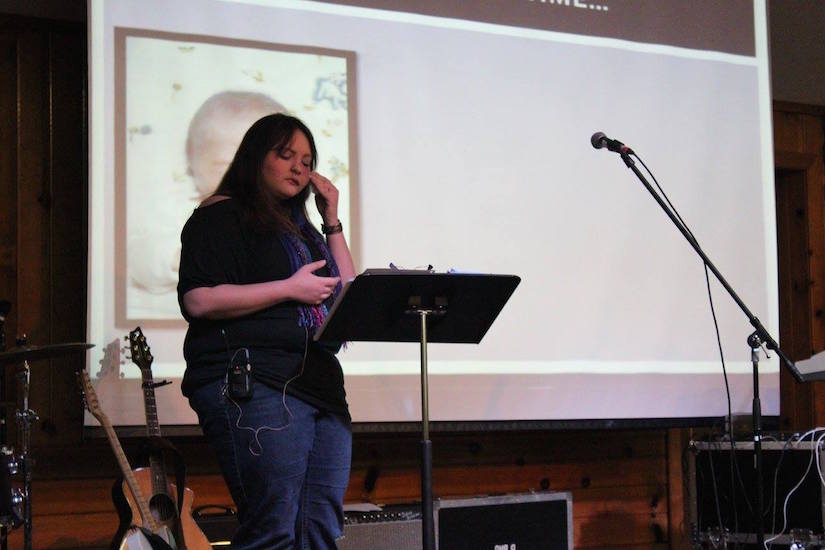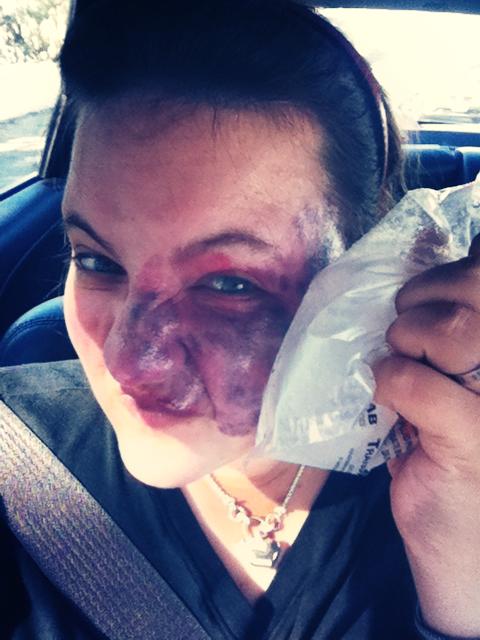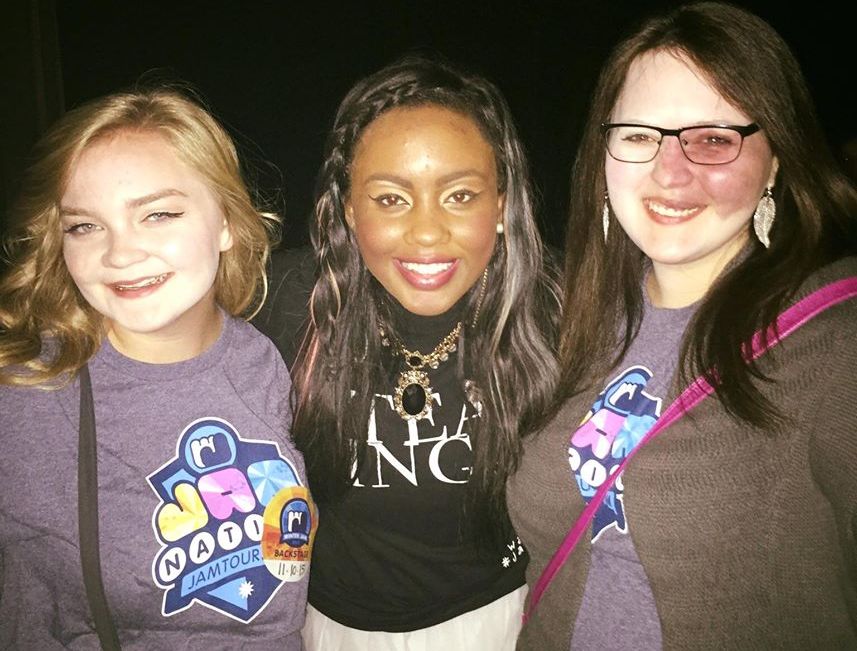10 Things I Want Kids Growing Up With a Physical Difference to Know
To those growing up with a physical difference,
If you’re anything like me, people often stare your direction, and you feel like you’ve heard it all in regards to your physical appearance. And if you’re anything like me, you didn’t ask for this journey — but you’re on it.
I was born with a port-wine stain birthmark that covers half my face, which travels all the way to my brain (causing another condition called Sturge-Weber syndrome) and caused my facial features to be asymmetrical. In the last few years, I started to blog about my journey with a facial difference and how the world often reacts. As I write, I learn.
Below is a list of lessons I’ve learned over the years, as well as a list of things I wish I had realized growing up. Our physical differences may be different, or maybe you have the exact same type of birthmark in the exact same location. Either way, perhaps you need a boost of encouragement, or maybe you just need to know you’re not alone in your journey.
1. You have a voice. It took me nearly 20 years and my photo going viral to realize I had one. We have the power to stick up for what is right; we have the power to stick up for others and more importantly, ourselves. What you have to say is important. Use your words. Speak them, write them, blog them, YouTube them, put them to a melodious tune. Whatever way you communicate best — do it. What you have to say is important, and people will listen. Write that book, sing that song. You have a story to tell.

2. There are some days and situations you overcome with zeal, and other days you barely survive — and both days are OK. Sometimes there are days that are emotionally draining, and depending on your condition, some of you even experience health scares that leave you unsure if you have another day left on your life’s timeline. But here you are, reading this article. You’ve made it this far. You’ve survived, you’ve overcome more than you realize. You are amazing.
3. Remember to laugh. Life can be hard, physical difference or not, and laughter is crucial. For example: Half my face is purple, so I refuse to wear certain colors. When I shop with my friends, I often find myself telling them, “Um. No. That doesn’t match my face. A girl’s gotta color coordinate!” Find the humor and joy in life. Look for the positive in every situation. The world is a brighter place when you do. And remember — sometimes the smallest moments are the greatest ones.
4. It’s OK to wonder what life would have been like had you been born “normal.” Just because you ask doesn’t mean you lack confidence, and you don’t have to feel guilty for wondering. I have days when I wonder what I would look like without my birthmark and asymmetrical facial features. I even wonder how my personality would be different, had I not grown up with regular laser treatments, strangers’ awkward gawking and comments. It’s not healthy to obsess and dwell on these curiosities, but it is OK to wonder from time to time. The more speaking and writing I do, the more I come to realize that most people wonder, “What if I looked different?” After all, that’s how makeup and hair dye got invented; it’s what sells high heels and Spanx.
5. If you’re a girl, remember, you are beautiful and stunning. If you’re a guy? You are handsome with tons of swag. This summer I made a new, encouraging friend of the opposite sex. He heard a part of my story and kept emphasizing how beautiful I was, both internally and physically. I found myself blushing, awkwardly looking to the ground, unsure of how to respond. Beyond my grandfather, I don’t recall anyone from the male gender telling me I was beautiful — and for months I’ve tried to recall other men giving me the same compliment.
Having a guy tell me I was beautiful while standing face-to-face was one of the most internally painful social situations I’ve ever been in. It was, and still is, a foreign experience. Bluntly put, most comments I’ve received about my looks have been negative and hurtful. Growing up, I quickly learned to be on the defense when my appearance came up — especially around new people. I’ve always believed and told myself I was beautiful, but I realized through this experience that I never expected or anticipated a man unrelated to me to think the same thing. But they do, and they think the same about you. And they’re right. Don’t be afraid to let your guard down.
6. There are online support groups you can join. Only three people out of 1,000 people have the same condition I have (according to the Vascular Birthmarks Foundation), and even fewer have their birthmarks predominantly placed on their face. Until a few years ago, and in all my life, I had only seen a couple of people in-person with the exact same birthmark I have — and we never even said hello. Until I was about 21 and started blogging about my story, it never dawned on me that there were online groups I could join. After all, I didn’t have a “birthmark mentor” to tell me teach me these things.
Now, a few years later, I’m in several groups, and I work for the Vascular Birthmarks Foundation, which also provides a lot of insight and support. You may feel alone in your day-to-day life, but there are people all over the world who relate to and understand you. My family gets my situation to an extent, more than most people. They’re the most supportive family I could ever dream of, but they don’t live with my condition 24/7. When I finally connected with people who also had the same condition? Wowzers. These people get me completely. (At least, the birthmark part of me.)

7. Only you know what’s best for you, especially in regards to your health. Do your research, listen to opinions. But most of all — make sure you make your decision with your parents and doctors by your side, using their wisdom and knowledge to the fullest.
When I first announced on social media that I would be having laser treatments, people became angry — and they weren’t afraid to voice their thoughts. But here’s the thing… They didn’t know about my condition. They only knew I had a “purple”birthmark, and that was the extent of their knowledge. They didn’t know the medical complications that could arise if I chose not to have the treatments again.
Sometimes, people who have the exact same condition are also strongly against the treatments. The treatments aren’t for everyone, and that’s OK. Each journey looks different for everyone. It’s OK to vary in opinions. The treatments aren’t what bind us together; it’s the journey and support.
8. Your condition doesn’t define you. Yes, it’s a part of you, but you are still you, no matter what people say. No matter what you look like. Be confident. You’re a rock star.
9. There are amazing people who will support and encourage you — people who will get to know you beyond what they see. Sometimes it can be discouraging when people stare or make rude comments. Thankfully, not everyone reacts in a cruel and hurtful way. I’ve always been able to make friends easily, but it did take me a while to find a good group of close friends who are always there for me. We’ve all been hurt by someone, but don’t ever be afraid to make new friends. For every unkind person, I believe there are at least twice as many beautiful, kind people.
10. You can change the world. You have just as much power as anyone else. Shoot for the stars, go for the impossible. Embrace your passions and dare to dream. You can do anything you put your mind to, and you have an endless amount of potential. You make the world a more beautiful place.
Love always,
Your mentor with a physical difference,
Crystal
Follow this journey on The Travelin’ Chick.
The Mighty is asking the following: Write a letter to anyone you wish had a better understanding of your experience with disability and/or disease. If you’d like to participate, please send a blog post to community@themighty.com. Please include a photo for the piece, a photo of yourself and 1-2 sentence bio. Check out our Share Your Story page for more about our submission guidelines.

